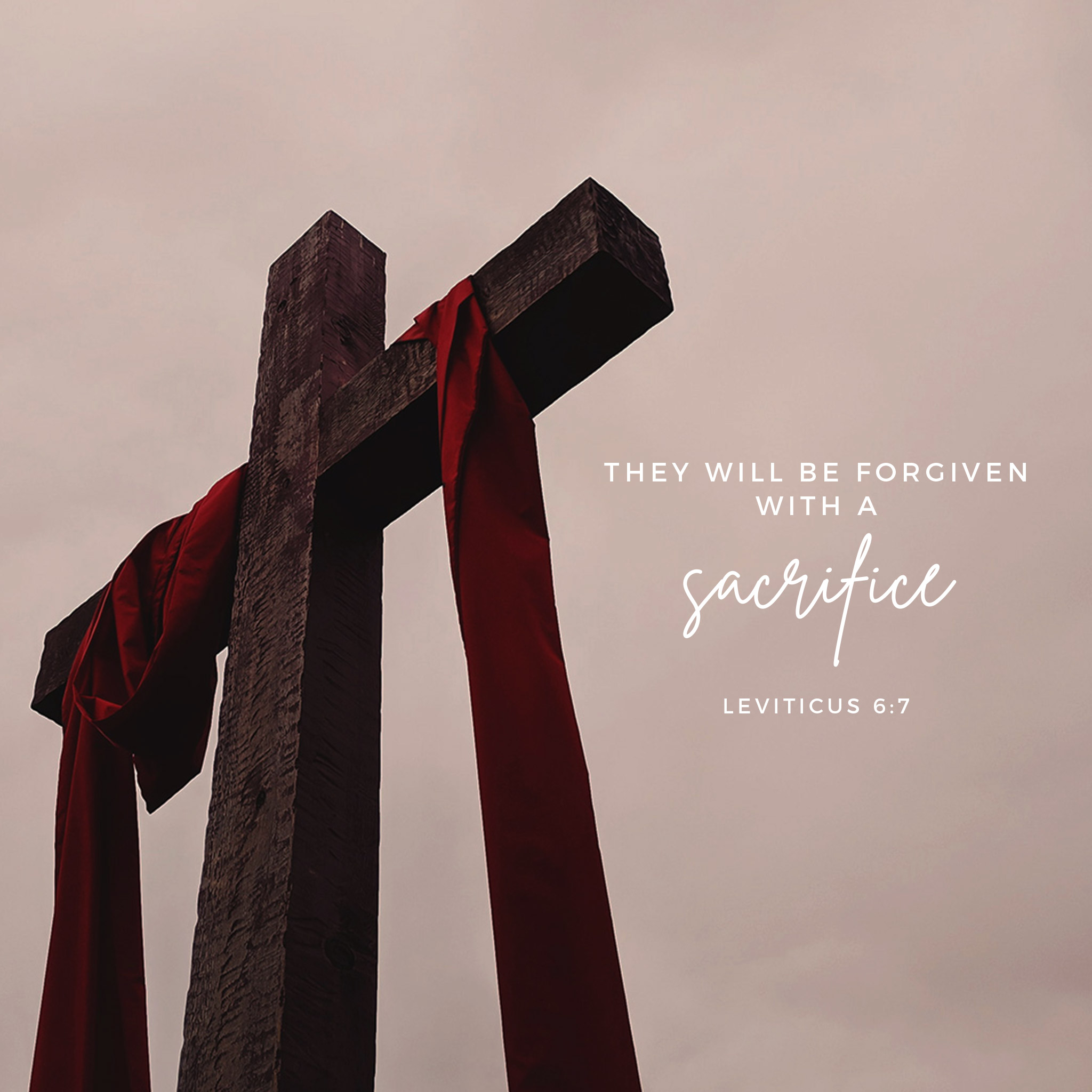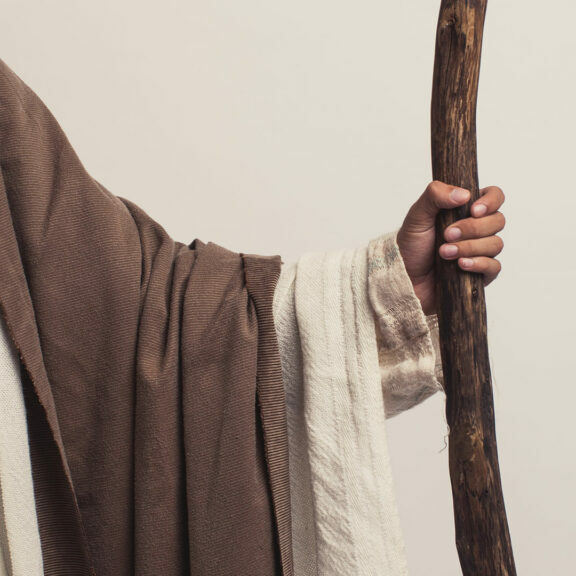February 21, 2021
Pastor Gunnar Ledermann
Leviticus 4, 6; Select Verses
Leviticus 4, 6; Select Verses
1 The Lord said to Moses, 2 “Say to the Israelites: ‘When anyone sins unintentionally and does what is forbidden in any of the Lord’s commands—
3 “‘If the anointed priest sins, bringing guilt on the people, he must bring to the Lord a young bull without defect as a sin offering for the sin he has committed.
22 “‘When a leader sins unintentionally and does what is forbidden in any of the commands of the Lord his God, when he realizes his guilt
27 “‘If any member of the community sins unintentionally and does what is forbidden in any of the Lord’s commands, when they realize their guilt 28 and the sin they have committed becomes known, they must bring as their offering for the sin they committed a female goat without defect. 29 They are to lay their hand on the head of the sin offering and slaughter it at the place of the burnt offering. 30 Then the priest is to take some of the blood with his finger and put it on the horns of the altar of burnt offering and pour out the rest of the blood at the base of the altar. 31 They shall remove all the fat, just as the fat is removed from the fellowship offering, and the priest shall burn it on the altar as an aroma pleasing to the Lord. In this way the priest will make atonement for them, and they will be forgiven.
1 The Lord said to Moses: 2 “If anyone sins and is unfaithful to the Lord by deceiving a neighbor about something entrusted to them or left in their care or about something stolen, or if they cheat their neighbor, 3 or if they find lost property and lie about it, or if they swear falsely about any such sin that people may commit— 4 when they sin in any of these ways and realize their guilt, they must return what they have stolen or taken by extortion, or what was entrusted to them, or the lost property they found, 5 or whatever it was they swore falsely about. They must make restitution in full, add a fifth of the value to it and give it all to the owner on the day they present their guilt offering. 6 And as a penalty they must bring to the priest, that is, to the Lord, their guilt offering, a ram from the flock, one without defect and of the proper value. 7 In this way the priest will make atonement for them before the Lord, and they will be forgiven for any of the things they did that made them guilty.”
I’m going to start with two simple scenarios this morning, and both are going to work under the presumption that we all like cupcakes. First, there is one cupcake left on the counter, and you left it there planning to eat it later. Then, someone comes by and eats it, and when you find out who ate it you are upset at them. But they apologize immediately because they did not know you were saving it. Second, there is one cupcake left on the counter, and you left it there planning to eat it later. Then, someone who knows how much you like cupcakes and who knows you are saving it because you have been good all week and this will be your one cheat day indulgence, waits for you to be in the room with the cupcake and then picks it up and eats the whole thing in one bite smiling at you. Now, replace cupcakes with a position on the sports team, your reputation with your friends, the answers to a test, a promotion at work, a girlfriend, boyfriend, spouse or the love or custody of your children, then real damage is done. Real damage that has touched each of your lives whether someone intended it or not.
Deciding whether or not someone is guilty can be a real challenge. Look at any number of headlines in the news right now and it is easy to see how difficult it is to determine whether someone is guilty or not. Terms like impeachment and cover up are all over the place. There are plenty of accused people claiming they did not mean to do something wrong, and plenty claiming their intentions were always criminal. While our world struggles to decided who is guilty, who had evil intentions, how much to punish and how to make amends, God does not struggle in his decision making. God cares about one question, “Did you commit the crime or not?”
One of two sacrifices were required by God when his law was broken by the people of Old Testament Israel. The first sacrifice was called the sin offering. This was required when someone sinned unintentionally. It had different requirements for priests, leaders of the people and individuals, but all required the shedding of an innocent animal’s blood. This sacrifice highlighted that fact that sin was sin whether intentional or not; you could not plead ignorance. This sacrifice was one of atonement meaning it was a sacrifice given to satisfy God’s anger against someone for committing sin. The blood that was shed covered over the sinful action so that God no longer saw the sin, thus restoring peace between the person and God. The underlying truth was that God always has the right to be angry when we sin, whether we realize our sin or not. And God’s anger must be satisfied either by us or a substitute.
The other sacrifice was the guilt offering. This was required when someone sinned intentionally. This is premeditated sin that someone understood full well the evil they were doing and did not stop. This sacrifice again highlighted the fact that all sin must be paid for with the shedding of an innocent animal’s blood. However, this sacrifice had added demands to the guilty party. The one who intentionally sinned needed to sacrifice a ram or lamb, but also in Leviticus 6 it is written, 5… “They must make restitution in full, add a fifth of the value to it and give it all to the owner on the day they present their guilt offering.” The intentional sinner was required to make a sacrifice to satisfy God’s anger over sin, and also make up the cost of the damages to those they wronged plus twenty percent. Again, we see the underlying truth that whether we sin unintentionally or intentionally, God demands payment from us for our sins in blood. And with this sacrifice we see God’s desire for us to make things right with those we sin against.
You have sins that need to be paid for. You have done things that hurt others; you have lied, cheated, stolen, tried to cover up something bad and sworn that you did not do something bad that you actually did. You are guilty of sin, but you do not bring animals here to church to deal with your sins. And even the animal sacrifices of the Old Testament did not actually cover over, pay for or satisfy God’s anger over sin. Actually, you are not asked to bring anything valuable with you to church to make up for your sins. You do not have anything to bring here to make up for your sins because the only thing that makes up for sin is blood. Blood is life. Life is what is taken from a sacrifice to allow the one sacrificing to live. You cannot make the payment for your sins to satisfy God’s anger because it demands your very life, which is what we hear in Psalm 49, 8 “the ransom for a life is costly, no payment is ever enough.” And so we look at our sin filled lives hating the sinful selfish things we keep doing that we do not want to do, but also falling into sinful selfish things we plan to do. You also face the danger of getting to a point in your life where you stop admitting your sinfulness or even deny that you are sinful or that sin is as serious as death and hell.
Instead, you and I must share the plea, the cry and prayer of Paul in Romans 7, 24 … “Who will rescue me from this body of death?” And, with Paul, we share his immediate words of the next sentence, Romans 7, 25 “Thanks be to God, who delivers me through Jesus Christ our Lord!” Your sins, the ones you are aware of, the ones you did not realize, the ones you have all kinds of excuses for and the ones that bring you to your knees all need deliverance from God’s anger. David, the King of Israel who committed adultery with a married woman and then plotted to have her husband killed said in Psalm 51, 4 “Against you, you only, have I sinned and done what is evil in your sight; so you are right in your verdict and justified when you judge.” Now, David sinned against more than just God, but he recognized that all sins at their core are against God. Therefore, with the payment for sin so high and God being the one hurt be all sin, God alone could save you from your sins.
And so, we look to the promise God made in Isaiah 53, the promise we have printed on our banner for the season of Lent, 5 “But he was pierced for our transgressions, he was crushed for our iniquities; the punishment that brought us peace was on him, and by his wounds we are healed.” God knows all your sins and is angry over all your sins, but God loves you and does not want to punish you in hell. Instead, God wants you to have life and be with him in heaven. So, God sent Jesus, the “He” that was punished for your sins, the “He” that shed his blood, the “He” that was sacrificed and the “He” that brought you peace. Jesus was the promise God made to Israel and was pictured in their sacrifices. Jesus is the promise made to you and the sacrifice for your sins, and the sins of the world.
You now live at peace with God because Jesus shed his blood for you. When you fall into unintentional or intentional sins, Jesus is your answer to making things right with God. His payment for sin is final and you have been saved. And with your heart filled with that peace from God’s forgiveness and love, you now know how to respond when someone sins against you unintentionally or intentionally. When someone sins against you unintentionally or intentionally, they have still sinned against you. So, you can in a kind manner show them their sin and forgive them. And, whether they acknowledge that they have sinned or want to make amends with you, you have given them the same loving, selfless gift God gave you, forgiveness. And your conscience is clear because you showed them their sin and forgave them. You get to let any resentment or anger go, which is not easy, but one aspect of the beauty of Jesus’ sacrifice for sin is that it paid for all sins. So even if someone has sinned against you, it has been paid for and you are free from worrying about demanding payment or punishment. Live in the freedom of Christ and the beauty of his forgiveness and a future home in heaven, do not let yourself become consumed by making everyone in your life pay you back for wrong doings. At the same time, when you sin unintentionally or intentionally against someone, own up to it, confess your sin and say what you did wrong, ask for forgiveness and do what you can in love to make up for the wrong that you did. And if someone forgives you and you get to pay them back for the wrong you did, rejoice and give thanks to God. And if they will not forgive you or let you lovingly pay them back, then you still get to rest in the forgiveness of Jesus.
Whether you like cupcakes or not, real damage has touched each of your lives. In the sins that others have committed against you and what sins you have done to others, you have been hurt, and others have been hurt, and above all, God has been sinned against. God does not struggle with deciding who is guilty or how to punish, he knows all our sins and he punished all of us through Jesus. Jesus made the payment in blood, the payment for your sins, the payment to give you life and the payment to bring you peace with God. During this season of Lent, we see Jesus paying for our sins. Amen.




